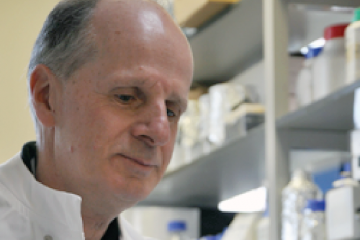Partnerships and impact awards
The use of PrP transgenic Drosophila to replace and reduce mice in the bioassay of mammalian prions

At a glance
Completed
Award date
November 2017 - June 2019
Grant amount
£75,608
Principal investigator
Dr Raymond Bujdoso
Co-investigator(s)
Institute
University of Cambridge
R
- Replacement
Read the abstract
View the grant profile on GtR
